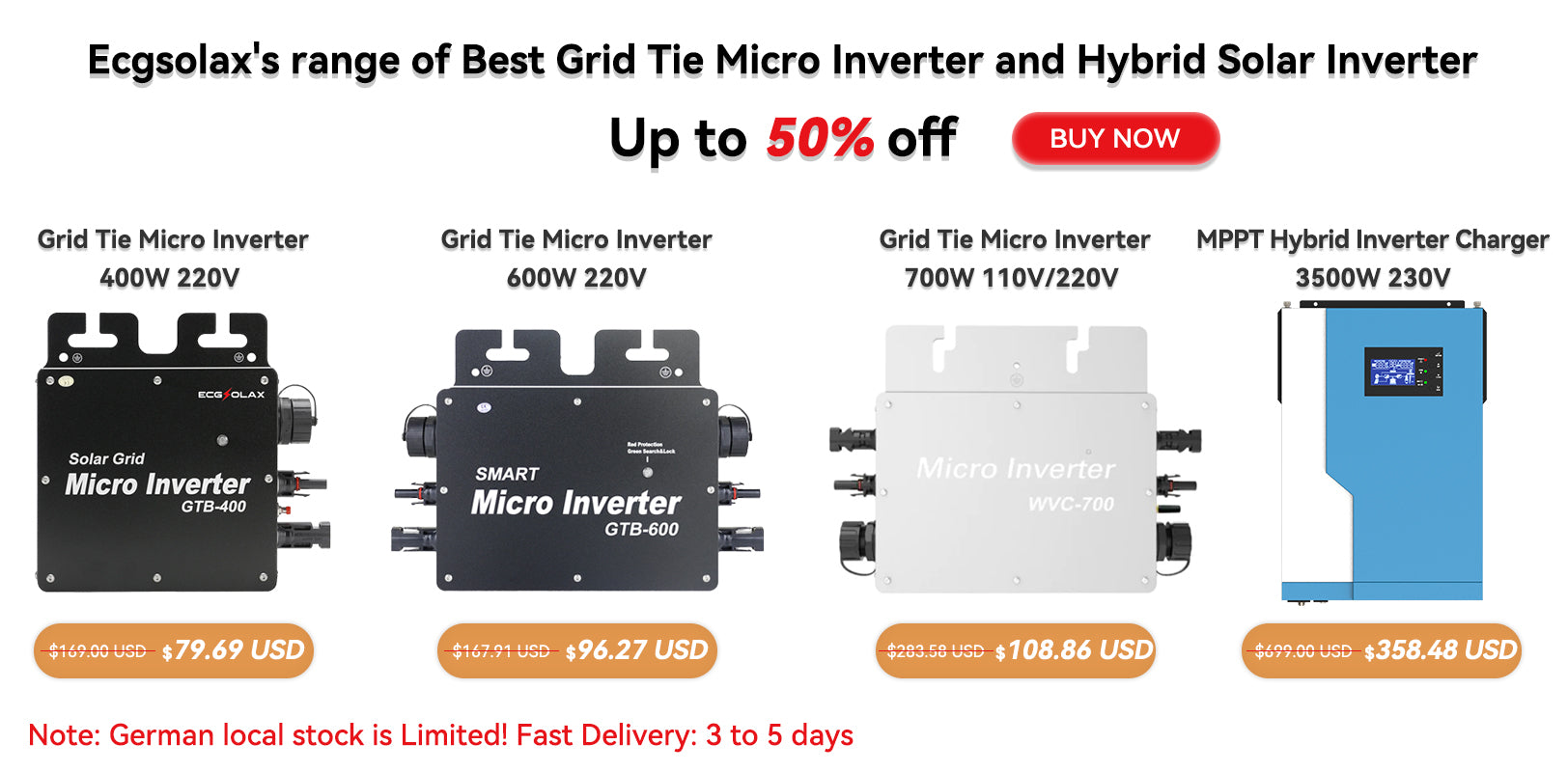
As solar energy continues to gain popularity as a clean and sustainable power source, more homeowners are considering installing solar panels to reduce their carbon footprint and lower their energy bills. When it comes to choosing the right solar energy system, one important decision is selecting the type of inverter to use. In this blog post, we will explore the differences between micro inverters and central inverters, helping you make an informed decision for your solar energy needs.
Understanding Micro Inverters
Advantages of Micro Inverters:
- Enhanced Performance: Micro inverters are known for their ability to optimize the performance of each solar panel independently. Since each panel has its own micro inverter, shading or malfunctions in one panel do not affect the performance of the others. This results in higher energy production and improved system reliability.
- Easy Installation: Micro inverters are typically easier to install than central inverters. They require less complex wiring and do not necessitate the use of high-voltage DC cables, making the installation process quicker and simpler.
- Scalability: Micro inverters offer greater scalability compared to central inverters. If you plan to expand your solar energy system in the future, adding more panels with micro inverters is a straightforward process. Each additional panel operates independently, allowing for flexibility and incremental growth.
Exploring Central Inverters
Central inverters, also known as string inverters, are a traditional choice for solar energy systems. They are installed in a central location and are connected to a string of solar panels. Central inverters convert the DC power generated by the combined panels into AC power that can be used to power your home.
Advantages of Central Inverters:
- Cost-Effective: Central inverters are generally less expensive than micro inverters, making them an attractive option for those looking to keep their initial installation costs low. If you have a limited budget, a central inverter might be a more viable choice.
- Maintenance and Monitoring: Since central inverters are located in a single central location, monitoring and maintenance become more convenient. Any maintenance or troubleshooting can be done in one place, simplifying the process and reducing costs associated with panel-level maintenance.
- Efficiency: Although micro inverters excel in individual panel performance, central inverters can achieve higher overall system efficiency, especially when there are no shading issues or significant panel malfunctions. Central inverters benefit from economies of scale, making them more efficient in larger solar installations.
Making the Right Choice
Choosing between micro inverters and central inverters ultimately depends on your specific needs and preferences. Consider the following factors when making your decision:
1. System Size: Micro inverters are more suitable for smaller solar energy systems, while central inverters are better suited for larger installations where cost efficiency is a priority.
2. Performance Optimization: If your solar panels are subjected to shading or varying orientations, micro inverters will optimize the performance of each panel, ensuring maximum energy production.
3. Cost Considerations: Central inverters are generally more cost-effective for larger systems, but micro inverters offer scalability and panel-level performance monitoring, which may justify their higher initial cost for some homeowners.
Conclusion
When choosing between micro inverters and central inverters for your solar energy system, it's essential to consider your specific needs, system size, and budget. Micro inverters provide panel-level optimization and are ideal for smaller installations, while central inverters offer cost efficiency and are better suited for larger systems. Whichever option you choose, investing in solar energy is a wise decision that contributes to a cleaner and more sustainable future.
Remember to consult with a reputable solar energy provider or installer who can assess your specific requirements and help you make the best choice for your home. Embrace the power of solar energy and enjoy the benefits of reduced energy costs and a greener environment.


0 comments